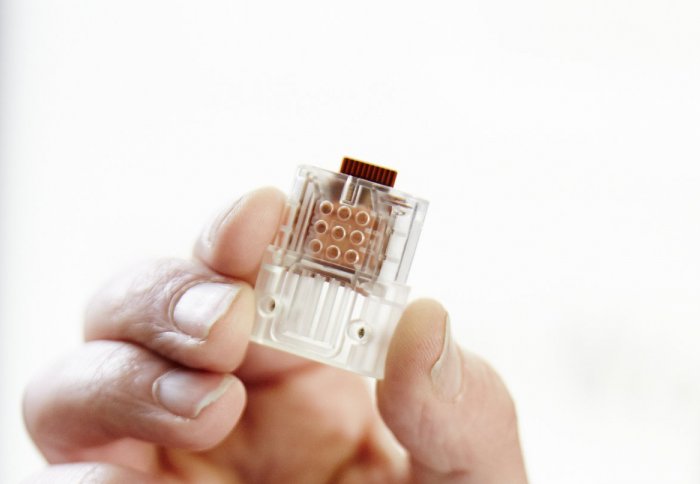Scientists at Imperial College London, in collaboration with diagnostic technology company, DNA Electronics, have developed a USB diagnostic device capable of detecting HIV in a drop of blood. The disposable point-of-care device – which can be plugged into a computer to view test results – could help HIV patients monitor the effectiveness of their treatment.
In addition, the progress of patients in remote locations could be better monitored using the USB device. The research – which was published in the journal, Scientific Reports – shows that the HIV diagnostic can produce results in just over 20 minutes.
Currently-available laboratory tests for HIV take at least three days to generate results. As effective HIV management relies upon the accurate and timely measurement of the amount of virus present in a patient’s bloodstream, the new USB device could accelerate decision-making regarding antiretroviral therapies.
In some parts of the world where the disease is endemic, laboratory facilities to monitor HIV burden do not exist at all. While antiretroviral therapies can reduce the viral load to near-zero, HIV can sometimes develop a resistance to the drug, causing the medication to stop working.
“HIV treatment has dramatically improved over the last 20 years – to the point that many diagnosed with the infection now have a normal life expectancy,” said senior study author Dr. Graham Cooke, researcher in the Department of Medicine at Imperial College London. “However, monitoring viral load is crucial to the success of HIV treatment. At the moment, testing often requires costly and complex equipment that can take a couple of days to produce a result. We have taken the job done by this equipment, which is the size of a large photocopier, and shrunk it down to a USB chip.”
According to Cooke, the technology is still in its infancy, however it may one day enable HIV-positive patients to monitor their viral levels just as diabetic patients routinely check their blood glucose levels. In particular, the device could benefit patients living in remote regions of sub-Saharan Africa, where patients often have no access to HIV testing laboratory services.
The medical device uses a mobile phone chip, onto which a small drop of blood is placed. HIV in the blood sample induces a change in acidity, which the microchip converts into an electrical signal. When plugged into a computer, the USB stick populates the test results on a specific program.
Cooke and his colleagues tested 991 blood samples with the medical device and found that the diagnostic showed 95 percent accuracy in detecting HIV. The researchers are now assessing whether the technology could be used to detect other chronic viral infections, such as hepatitis. Imperial College London spinoff company, DNA Electronics, is also applying the technology to detect bacterial infections and antibiotic resistance.
“This is a great example of how this new analysis technology has the potential to transform how patients with HIV are treated by providing a fast, accurate and portable solution,” said DNAe Founder and Executive Chairman and Regius Professor at the Department of Electrical and Electronic Engineering at Imperial College London, Professor Chris Toumazou. “At DNAe, we are already applying this highly adaptable technology to address significant global threats to health, where treatment is time-critical and needs to be right first time.”












Join or login to leave a comment
JOIN LOGIN